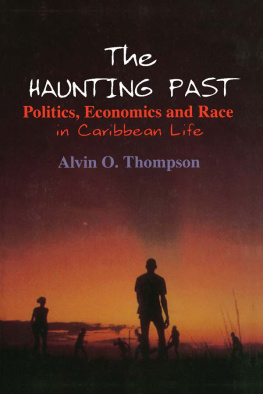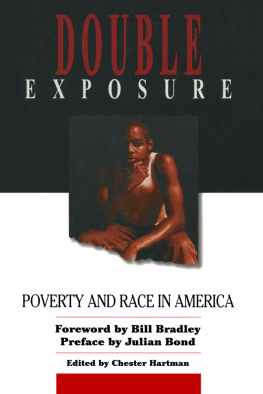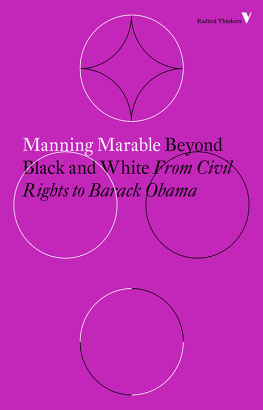Schaub Jean-édéric - Race Is about Politics
Here you can read online Schaub Jean-édéric - Race Is about Politics full text of the book (entire story) in english for free. Download pdf and epub, get meaning, cover and reviews about this ebook. year: 2019, publisher: Princeton University Press, genre: Politics. Description of the work, (preface) as well as reviews are available. Best literature library LitArk.com created for fans of good reading and offers a wide selection of genres:
Romance novel
Science fiction
Adventure
Detective
Science
History
Home and family
Prose
Art
Politics
Computer
Non-fiction
Religion
Business
Children
Humor
Choose a favorite category and find really read worthwhile books. Enjoy immersion in the world of imagination, feel the emotions of the characters or learn something new for yourself, make an fascinating discovery.
- Book:Race Is about Politics
- Author:
- Publisher:Princeton University Press
- Genre:
- Year:2019
- Rating:3 / 5
- Favourites:Add to favourites
- Your mark:
- 60
- 1
- 2
- 3
- 4
- 5
Race Is about Politics: summary, description and annotation
We offer to read an annotation, description, summary or preface (depends on what the author of the book "Race Is about Politics" wrote himself). If you haven't found the necessary information about the book — write in the comments, we will try to find it.
Race Is about Politics — read online for free the complete book (whole text) full work
Below is the text of the book, divided by pages. System saving the place of the last page read, allows you to conveniently read the book "Race Is about Politics" online for free, without having to search again every time where you left off. Put a bookmark, and you can go to the page where you finished reading at any time.
Font size:
Interval:
Bookmark:

LESSONS FROM HISTORY

Jean-Frdric Schaub
Translated by Lara Vergnaud
PRINCETON UNIVERSITY PRESS
PRINCETON & OXFORD
Copyright 2019 by Princeton University Press
Editions du Seuil, 2015. Collection La Librairie du XXIe sicle, sous la direction de Maurice Olender. First published in French as Pour une histoire politique de la race by Jean-Frdric Schaub
Requests for permission to reproduce material from this work should be sent to Permissions, Princeton University Press
Published by Princeton University Press,
41 William Street, Princeton, New Jersey 08540
In the United Kingdom: Princeton University Press,
6 Oxford Street, Woodstock, Oxfordshire OX20 1TR
press.princeton.edu
All Rights Reserved
LCCN 2018930582
ISBN 978-0-691-17161-6
British Library Cataloging-in-Publication Data is available
Editorial: Brigitta van Rheinberg and Amanda Peery
Production Editorial: Sara Lerner
Production: Jacqueline Poirier
Publicity: Jodi Price
This book has been composed in Miller
Printed on acid-free paper.
Printed in the United States of America
10 9 8 7 6 5 4 3 2 1
To Rebecca, Martha, and Jean
Later I came to know this gentleman much better and more closely, and therefore I have involuntarily presented him now more knowingly than then, when he opened the door and came into the room. Though now, too, I would have difficulty saying anything exact or definite about him, because the main thing in these people is precisely their unfinishedness, scatteredness, and indefiniteness.
FYODOR DOSTOEVSKY, THE ADOLESCENT
(TRANS. RICHARD PEVEAR AND LARISSA VOLOKHONSKY)
Lepidus: What manner o thing is your crocodile?
Anthony: It is shaped, sir, like itself, and it is as broad as it hath breadth. It is just so high as it is, and moves with its own organs. It lives by that which nourisheth it, and the elements once out of it, it transmigrates.
Lepidus: What colour is it of?
Anthony: Of its own colour too.
WILLIAM SHAKESPEARE, ANTHONY
AND CLEOPATRA, ACT 2, SCENE 7
RACE IS ABOUT POLITICS
The Current Moment
THIS IS NOT a history book. Or rather, this book does not only provide a history of the formation of racial categories in Europe and its colonies. The reader holds between his or her hands a collection of proposals on the ways historical research can contribute to contemporary debates on the attribution of racial identity to individuals and populations. The racial question looms on a global scale. On the one hand, Western countries, whether or not they led colonial empires in the nineteenth century, must now deal with manifestations of racism, be they instances of police brutality in the United States, torrents of racist speech in a Europe confronting a migrant crisis, or chromatic social hierarchies in Latin America. On the other hand, interethnic violence and social fragmentation into castes based on ideologies of purity and heredity appear to exist on every continent. Nonetheless, this book focuses solely on Western societies, in Europe and the Americas, in order to avoid premature conclusions or approximations about situations that can be observed in Asia and Africa and that call for studies of those places specifically.
This book was initially written for a French-speaking audience with the aim of illustrating to what extent the French case is singular compared to experiences in other countries and to theories developed within other academic traditions. I hope that the American edition of this work will play a similar role for the American case. In the following pages, Anglophone readers will discover an analysis drawn from a historians perspective and should note that my academic background does not mirror the usual approach to these subjects in the United States, and even less so do my proposals.
The method proposed in this work consists of identifying a core, which is specifically racial, within the collection of prejudices, phobias, political programs, and norms that are qualified, somewhat vaguely, as racist. Because Race Is about Politics: Lessons from History is not a history of racial thought, but rather an invitation for open debate to all readers interested in this field of study, its three primary objectives reflect a programmatic dimension. These objectives are as follows:
1. To distinguish racial categories and processes of racialization within a much larger group of xenophobic attitudes and policies;
2. To propose a chronology of the formation of racial categories in the West that dates back to the Middle Ages and is therefore not limited to the nineteenth and twentieth centuries;
3. To prepare students, citizens, and scholars within the social and human sciences to confront any challenges that may be created by the unpredictable outcomes of research in the field of genetic biology. It is, of course, indispensable to continue to denounce the ideological agenda and racist policies espoused by sociobiology. However, we must acknowledge that as the human and social sciences continue to develop their respective expertise, it is critical to monitor what genetic biology may contribute in the future to our understanding of the development of man within society.
This book makes proposals, which I am offering from within a specific time and place. At the same time, these proposals are underpinned by a methodological rejection of relativism. On the critique of relativism, we can go quickly. Suffice it to borrow from the anthropologist Grard Lenclud a logical argument against the idea that there are between human societies incommensurable realities that are therefore incommunicable. When a researcher says that a word, a ritual, a cultural expression, or a social institution is untranslatable into the language of his or her own society, we assume that he or she first has understood these objects in their own context. If we say that social realities are incommensurable, it is because we have been able to measure them. Thus the attribution of untranslatability and immeasurability to any object is a logical contradiction. Nonetheless, as the author of this book I have to clarify what my own historical and social coordinates are. Born, raised, and trained in France, I am a French citizen of second generation by my fathers side and third by my mothers side, both of them having come from Jewish families, one of which migrated to France from Poland, and the other from Germany, before World War II. There is, of course, a direct link between my interest in racial issues and the memory of the Holocaust that has been central in shaping my personality. Knowing this, I do not interpret the whole history of the West as a long-term preparation of the final disaster of the Third Reich. My approach to political processes of early modern and contemporary eras depends on my anchorage in the European experience, particularly in France. I admit, but only to a certain extent, the argument that only those who have experienced some type of phenomenon are able to transcribe it, but not that only a certain type of people is capable of understanding the transcript. My experience in France taught me that there was not necessarily a difference between a Jewish sensibility and a non-Jewish sensibility concerning the memory of the Holocaust.
Font size:
Interval:
Bookmark:
Similar books «Race Is about Politics»
Look at similar books to Race Is about Politics. We have selected literature similar in name and meaning in the hope of providing readers with more options to find new, interesting, not yet read works.
Discussion, reviews of the book Race Is about Politics and just readers' own opinions. Leave your comments, write what you think about the work, its meaning or the main characters. Specify what exactly you liked and what you didn't like, and why you think so.












